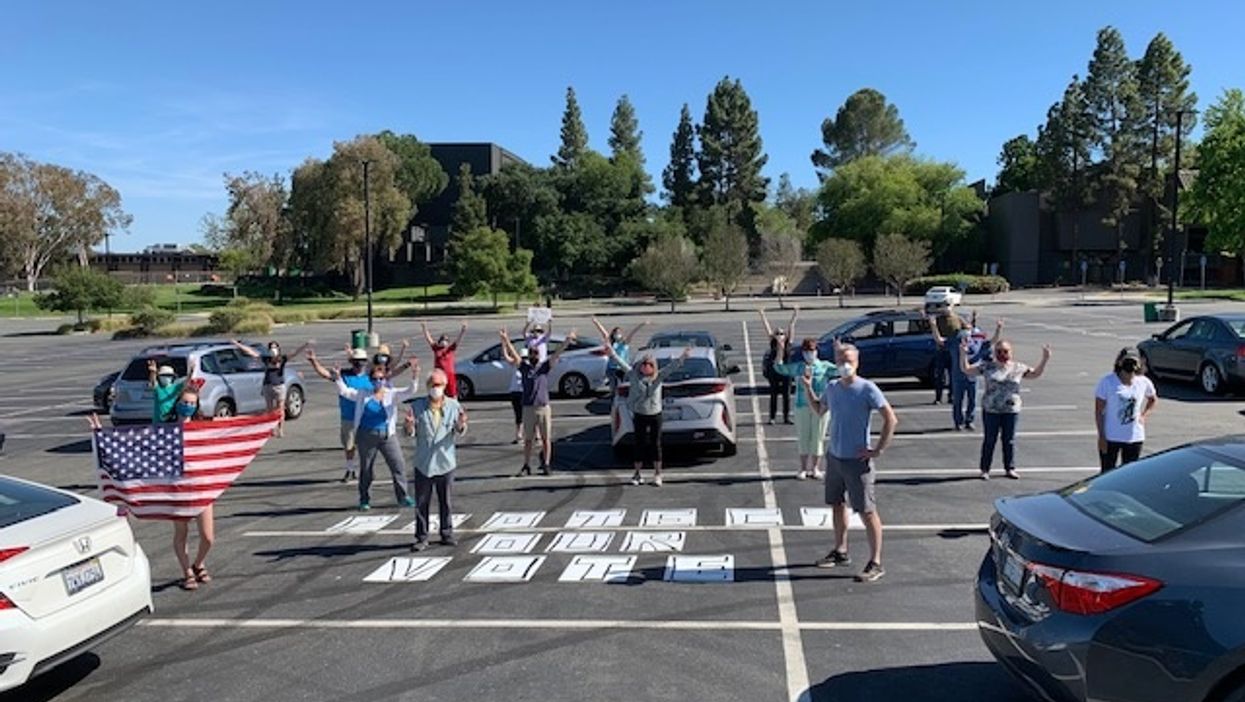The most sweeping promotion of mail voting in the presidential election so far, California's plan to send an absentee ballot to every voter, must first overcome legal challenges from the Republican Party.
The GOP has sued to prevent the effort to conduct the November election almost entirely by mail in the nation's most populous state as a way to limit the spread of the coronavirus. The lawsuit, filed Sunday in federal court, says Democratic Gov. Gavin Newsom exceeded his authority this month by telling county election officials to send all 20.7 million registered Californians a ballot this fall.
His order would potentially double the number of Americans who are provided with absentee ballots automatically, without having to ask for them. That's now the practice across just five states — Colorado, Washington, Oregon, Utah and Hawaii — although state law already allows 14 smaller counties in California to hold elections entirely remotely.
The lawsuit is one of the most aggressive moves at the courthouse yet by the GOP. It has announced plans to spend $20 million on lawyers this year, mainly to defend against the similarly financed push from Democrats and voting rights groups to persuade state and federal judges to ease limits on voting.
It says the governor's "brazen power grab" was not permitted by state law, which puts such rules only in the hands of the Legislature, and violates the Constitution. Newsom says his move is permissible because his job is to protect the public's health even while people are exercising their civic duty.
"We're on firm legal ground," Newsom said, arguing that "public health is a nonpartisan issue."
The new litigation — brought by the Republican National Committee, the state party and the House GOP campaign arm — says the voter fraud that would ensue under Newsom's plan would deprive honest Californians of their constitutional right to vote.
"No State that regularly conducts statewide all-mail elections automatically mails ballots to inactive voters because it invites fraud, coercion, theft, and otherwise illegitimate voting," the suit argues. "Fraudulent and invalid votes dilute the votes of honest citizens and deprive them of their right to vote in violation of the 14th Amendment."
That is the formalized version of the argument President Trump has been making with increasing ferocity — most recently in a series of Memorial Day weekend tweets.
"The United States cannot have all Mail In Ballots. It will be the greatest Rigged Election in history," the president tweeted Sunday, without offering any justification for his suspicions. "People grab them from mailboxes, print thousands of forgeries and 'force' people to sign. Also, forge names. Trying to use Covid for this Scam!"
There is no evidence of what Trump described, and a range of studies have found no evidence of widespread voter fraud — in elections mainly reliant on the mail or in-person polling places. Part of what GOP operatives lament is that the Democrats have done much better at capitalizing on a state law that permits operatives to gather the completed envelopes of other Californians. They have come up with no evidence, however, to support their suspicions that this so-called ballot harvesting has led to such crimes as completing the ballots of others or destroying ballots collected in GOP precincts.
California's overall political color is deep blue, so Joe Biden can be confident of securing its 55 electoral votes no matter how many people cast ballots. But the GOP, which took a drubbing in the state in the midterm election, has a decent shot at winning back three or four congressional seats — and believes its prospects would be bolstered by a low-turnout election.
One of the state's top House races is a comeback bid by Republican Darrell Issa, who filed a similar suit last week with the help of the conservative advocacy group Judicial Watch.




















